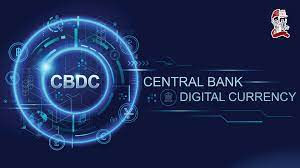BLOCKCHAIN APPLICATION IN AFRICA
- Leonard Tajeu

- Jun 2, 2021
- 6 min read

There are various developments on the African continent that indicate the growing interest in blockchain. We are seeing some impressive inroads in the use of blockchain in various African countries. In those countries, local tech startups have taken up blockchain technology to counter many of the economic and political issues that exist within the continent today.
The genuine use cases of blockchain in Africa are many. From bringing efficiency in voting systems to registering land titles, enabling seamless transactions online, allowing people to send, save and receive money, etc.
Another important use case for African countries is in the area of foreign aid, charity donation, medicine, and food distribution. Using blockchain technology for track and trace purposes could be a perfect game-changer.
Blockchain could also be used to solve a number of problems in the trade cycle. For example, there are currently high cross-border and domestic transaction costs in Africa compared to other continents limiting cross-border trade transactions. Blockchain technology could address many of these related trade issues.
Blockchain Initiatives in Africa
Though many African countries are (still) undecided about the use of blockchain, a growing number of countries are already welcoming the technology either in government or through private businesses. Countries like Kenya, Ethiopia, South Africa, Nigeria, and Ghana have already adopted blockchain technology in one way or another. Some of these initiatives are described below.
Kenya
Nairobi-based BitHub Africa — a blockchain accelerator for local start-ups — was founded in December 2015 and started operations the following month. BitHub provides consultancy services for organizations interested in deploying blockchain solutions across Africa and the Middle East. BitHub also helps local blockchain startups hit the ground running. The organization has a special focus on establishing micro-lending startups based on blockchain technology. BitHub Africa also engages with local regulators to advocate for the adoption of blockchain in Kenya’s tech policy and favorable regulations for ICOs and cryptocurrencies.
Another innovative Kenyan blockchain startup is Bit Pesa. Bit Pesa is focused on cross-border and B2B payments and cryptocurrency exchange transactions. Cross-border payments are a keystone in the pan-African economy, as many Africans live and work in one country and send back payments to family in a neighboring country. Founded in 2013, BitPesa aims to reduce the cost of money transfers between different African currencies and reduce the reliance on legacy financial systems originating in European countries. BitPesa wants to empower local Africans to seize control over their financial lives by giving them access to a more cost-effective way to pay each other and make money transfers.
An interesting example of blockchain use in Kenya among companies in the private sector is the research partnership between Twiga Foods and IBM. This partnership involves granting microcredit loans to retailers by leveraging blockchain technology to track specific metrics.
Ethiopia
Ethiopia might not be the first place you think of as a hotspot for blockchain technology. A predominantly rural country where only 15% of the population has access to the internet, Ethiopia has been going through severe civil unrest in the north in the recent past.
IOHK, the company behind the Cardano (ADA) cryptocurrency, believes it can help bridge this gap. In April, IOHK announced it had partnered with the Ethiopian government to create a blockchain-based system to track student performance in local schools. The system is expected to go live in January 2022.
According to the Ethiopian government, 5 million students will receive Cardano
blockchain-based IDs, which will allow the authorities to track every student’s academic performance. Also, 750,000 teachers will get access to the system. As a result, high school graduates will receive cards with near field communication (NFC) chips that will contain their educational credentials. This means the data will be available even if a child doesn’t have a mobile phone or other devices to connect to the system.
This will resolve the issue of fake certifications, which is a serious problem in Ethiopia. Moreover, it might give young Ethiopians opportunities they don’t have because their diplomas are not viewed as reliable in the West.
“I studied at Oxford, and I was intrigued why there were no students from Ethiopia. When I asked about it, I was told [the university] didn’t recognize their credentials. They don’t have enough information about what’s happening in Ethiopian universities,” said John O’Connor, IOHK’s director of African Operations.
South Africa
Various blockchain initiatives exist in South Africa as it has the most accommodative government when it comes to blockchain and cryptocurrency matters. Sun Exchange is a South African-based marketplace that allows anyone to invest in solar energy projects in South Africa using Bitcoin (BTC). Sun Exchange primarily focuses on South African solar projects but is expanding to other African countries like Kenya. This startup is unique in that it facilitates
anyone with Bitcoin to purchase solar energy systems and lease them to schools, communities, businesses, and government facilities. This investment scheme will allow investors to earn rental income while providing clean energy to local communities in areas that have a critical need for energy infrastructure.
Another exciting blockchain application is Tracr from the billion-dollar diamond company De Beers. The South African diamond company has already begun using blockchain technology to track diamonds mined in Africa to ensure that they are authentic and do not originate in war zones. In utilizing blockchain, De Beers provides a permanent record for all diamonds from
the minute they are mined to when they are sold to jewelry manufacturers. Providing this kind of traceability will improve the lives of those working in the diamond mining industry, as it ensures a positive feedback loop for suppliers.
Nigeria
Africa’s largest economy has not been left behind. Nigeria has various startups utilizing blockchain in different ingenious ways. For example, during the #EndSARS protests against police brutality in October 2020, young investors used bitcoin for fundraising when the government shut down local payment platforms.
SureRemit is a Nigerian blockchain company that aims to turn the remittances industry on its head. It is majority-owned by the Nigerian fintech holding company GreenHouse Capital, based in the capital Abuja. SureRemit works by utilizing blockchain technology to allow Africans anywhere in the world to make non-cash remittances to their friends and families back in Africa. Users purchase vouchers by using the RMT utility token and can even pay utility bills with it. In addition, SureRemit has partnered with over a hundred affiliate merchants where the vouchers can be redeemed for real-world goods and services.
The agriculture sector in Africa is perhaps the top sector of the economy that can be transformed by blockchain in ways that bring hundreds of billions in revenue and providing societal stabilization at the same time. Agrikore is a new blockchain startup headquartered in Nigeria, which has a plethora of actual use cases for blockchain technology.
Agrikore provides a marketplace where sellers & buyers can meet digitally without having to travel hundreds or thousands of miles to meet. Additionally, Agrikore is designed to inject funds into the ecosystem, thereby providing liquidity to a struggling sector transparently. The marketplace design also allows for on-chain payment, which is secure and instant, instead of relying on week-long payment transfers.
For the end food supplier, Agrikore helps identify all the players in the value chain so that they can properly label their products and ensure that it is all
accounted for. This centralized database allows for real-time management of the entire value chain of agriculture, enabling efficient participation in agricultural markets for every shareholder involved. This can boost sustainable development in Africa, providing food security to a billion people.
Ghana
The government of Ghana requested the help of local startups to develop blockchain systems that can provide Ghanaian landowners with documents of land ownership that will dispel problems of cartel corruption. Ghana is an interesting case since 80% of the nation’s land is owned communally. However, the lack of a reliable land registry leads to land disputes, the inability to prove ownership to banks, and other barriers to development.
Among the many negative legacies of European colonialism, land theft has had one of the most profound impacts on the continent. It has had a compounding effect on national economies, peace between neighboring countries and left psychological scars. Bitland is a Ghanaian blockchain company that is helping Africans cement legal ownership of their lands by providing land registry services through blockchain technology.
Bitland has created a streamlined land registration process that records an immutable record on the Bitshares blockchain, allowing people to register their properties and deeds permanently for the whole world to see. It currently focuses on Ghana, but it plans to expand its services globally within the next five years.
A world of blockchain initiatives exists in the continent, and the above applications are just merely a scratch on the surface. Africa is prime for an economic revolution that can be driven by blockchain growth. One of Africa’s great advantages over other continents in accepting blockchain is that there are
far fewer legacy systems “to get in the way.” African blockchain tech is starting from scratch, presenting a unique opportunity for the pan-African economy. African tech startups can establish entirely local, entirely decentralized networks, which will increase freedom and social equality across Africa. These companies start entirely from ground zero and elevate the idea for what is possible in innovation in Africa.
The blockchain companies sprouting up across Africa are founded and driven by young Africans seeking solutions to centuries-old problems in their communities through blockchain technology. They seek to solve problems that may not be specifically African but problems that affect Africans in a uniquely structural way.
“Every problem has a solution. You just have to be creative enough to find it.”
Travis Kalanick - Former CEO of Uber Technologies Inc.



Comments